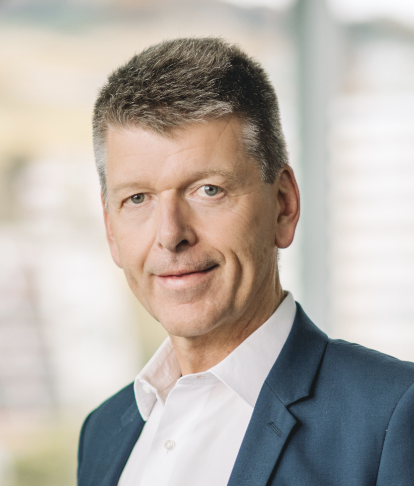Sanofi’s RSV antibody Beyfortus is still on track to reach blockbuster status this year as the company expands manufacturing capacity, according to remarks made Thursday morning by Sanofi executives.
During a media call, CFO François-Xavier Roger said Sanofi expects to rake in over €1 billion in sales for Beyfortus this year, despite supply falling short earlier this year due to demand exceeding manufacturing capacity. The asset, co-developed with AstraZeneca, generated €547 million in sales for Sanofi in 2023.
Beyfortus encountered roadblocks when it first entered the market. The companies initially underestimated the high level of demand that led to shortages. The White House urged Sanofi and AstraZeneca to supply an extra 230,000 additional doses of Beyfortus, on top of the 77,000 extra doses already rolled out.
 François-Xavier Roger
François-Xavier RogerThe company has now added two new Beyfortus manufacturing lines that are awaiting FDA approval in August or September. These will be used on top of the one production line Sanofi has already been using, according to Roger. Sanofi expects the bulk of Beyfortus sales this year to come in during the fourth quarter, citing RSV’s seasonality and the new manufacturing lines, he added.
The French pharma also said that it recorded a new sales record for Dupixent, which jumped 29.2% to €3.3 billion in the second quarter compared to the same quarter last year, Roger said.
The monoclonal antibody made up 30% of Sanofi’s overall sales of €10.75 billion. Total sales were up 10.2% compared to the €9.97 billion reported in the same period last year.
Earlier this month, the company won a label expansion in the EU for Dupixent as a treatment for COPD, or chronic obstructive pulmonary disease. Yet US regulators requested more data from Sanofi about the COPD indication before making its decision, pushing back a possible approval.
“We expect Dupixent to continue to grow for a few more years and to grow in the low double-digit first few more years,” Roger said. “So we are not done with Dupixent. Far, far from it.”
Vaccine sales dip; Opella rumors squashed
Meanwhile, Sanofi’s vaccine sales dipped in the second quarter by 4.8% to €1.2 billion. The pharma giant said it expects vaccination rates to be low this year because patients are “fed up” with getting multiple vaccinations, which will put a “little bit of pressure” on its overall flu business, according to Roger.
One way Sanofi is tackling vaccine fatigue is to co-develop a combination vaccine for flu and Covid-19 with Novavax in a partnership that was announced in May. Having a combination approach is more convenient for patients so they don’t need to be vaccinated twice, and there’s evidence this helps patients stay up to date with immunization, Roger said.
In the meantime, Sanofi also continues to invest in mRNA technology as the company believes this is still “relevant,” he added.
Sanofi also touched on French media reports regarding the potential sale of its consumer healthcare business called Opella. No decision has been made on whether to sell Opella despite some rumors in France, Roger said.
He reiterated that there has been some “misunderstanding” in French media that said certain brands, including Doliprane, which is an OTC painkiller sold in France, are being discontinued. “Our project is in no way synonymous with the end of Doliprane in France,” Roger said. “Doliprane is an integral part of the project.”
Further, Roger emphasized how Sanofi invested €20 million at its manufacturing site in Lisieux, France, last year to increase manufacturing capacity for Doliprane. This expansion is well underway and “bears weakness” to any misreporting, he said.
Sanofi is considering a sale or public listing of Opella, Roger said. Other drugmakers like Johnson & Johnson and GSK have also recently spun off or sold their consumer health businesses. The earliest a transaction could take place would be in the fourth quarter, he added.
“We are convinced that Opella will thrive best by operating independently of Sanofi,” Roger said.
Editor’s note: This article was updated to add background to the initial rollout of Beyfortus.